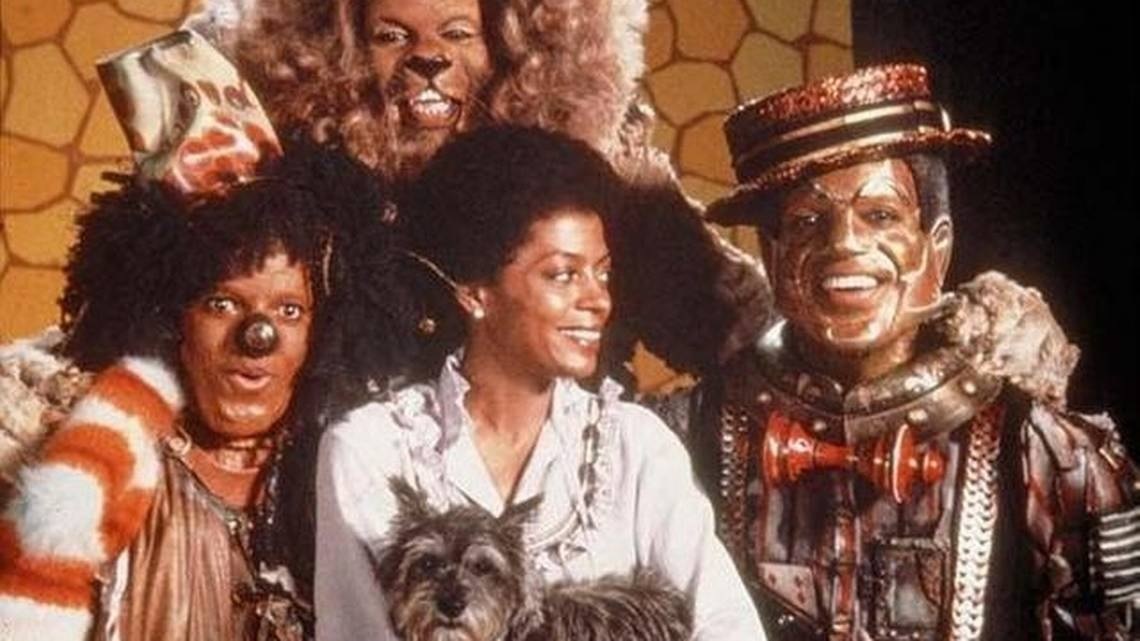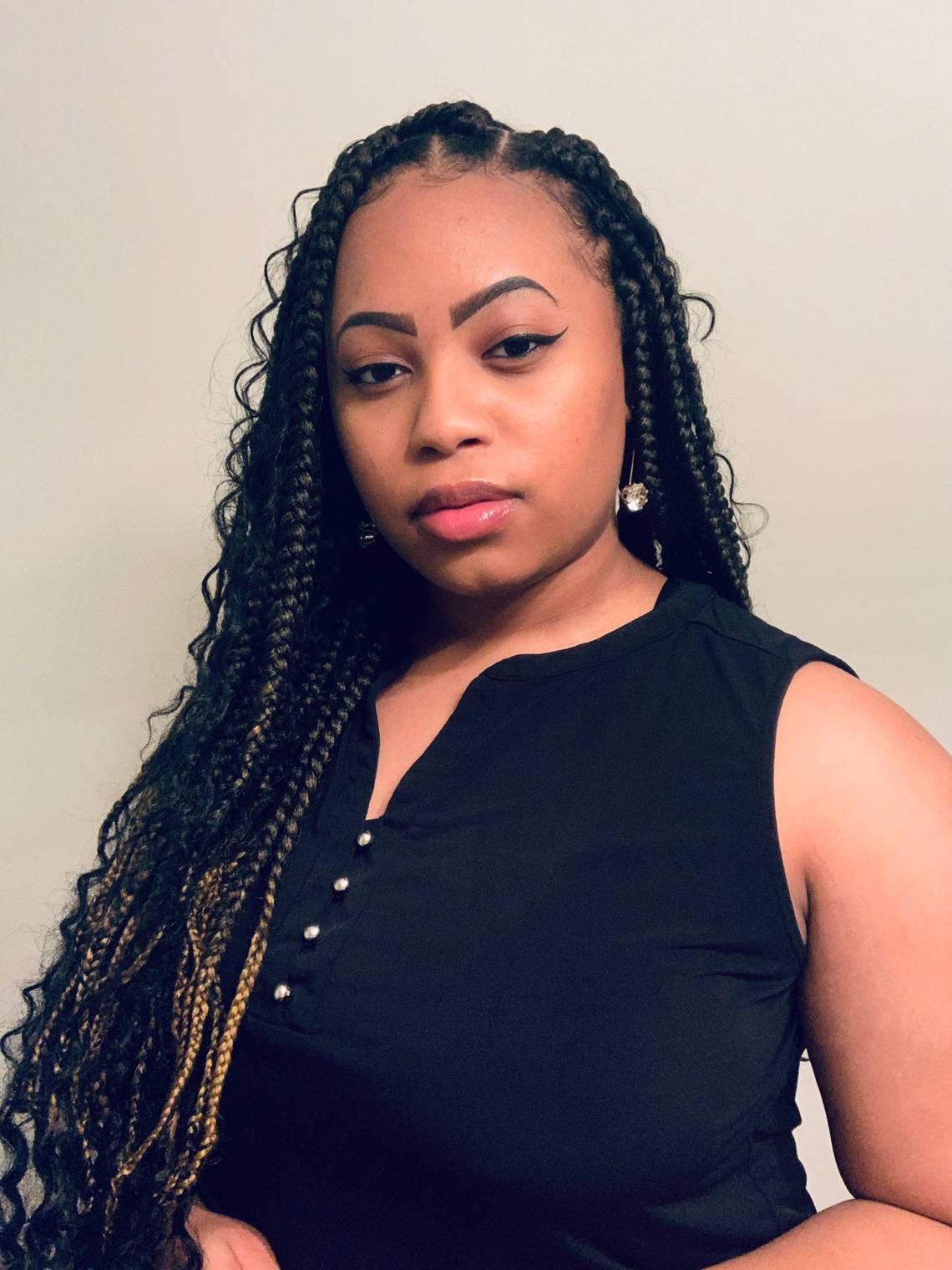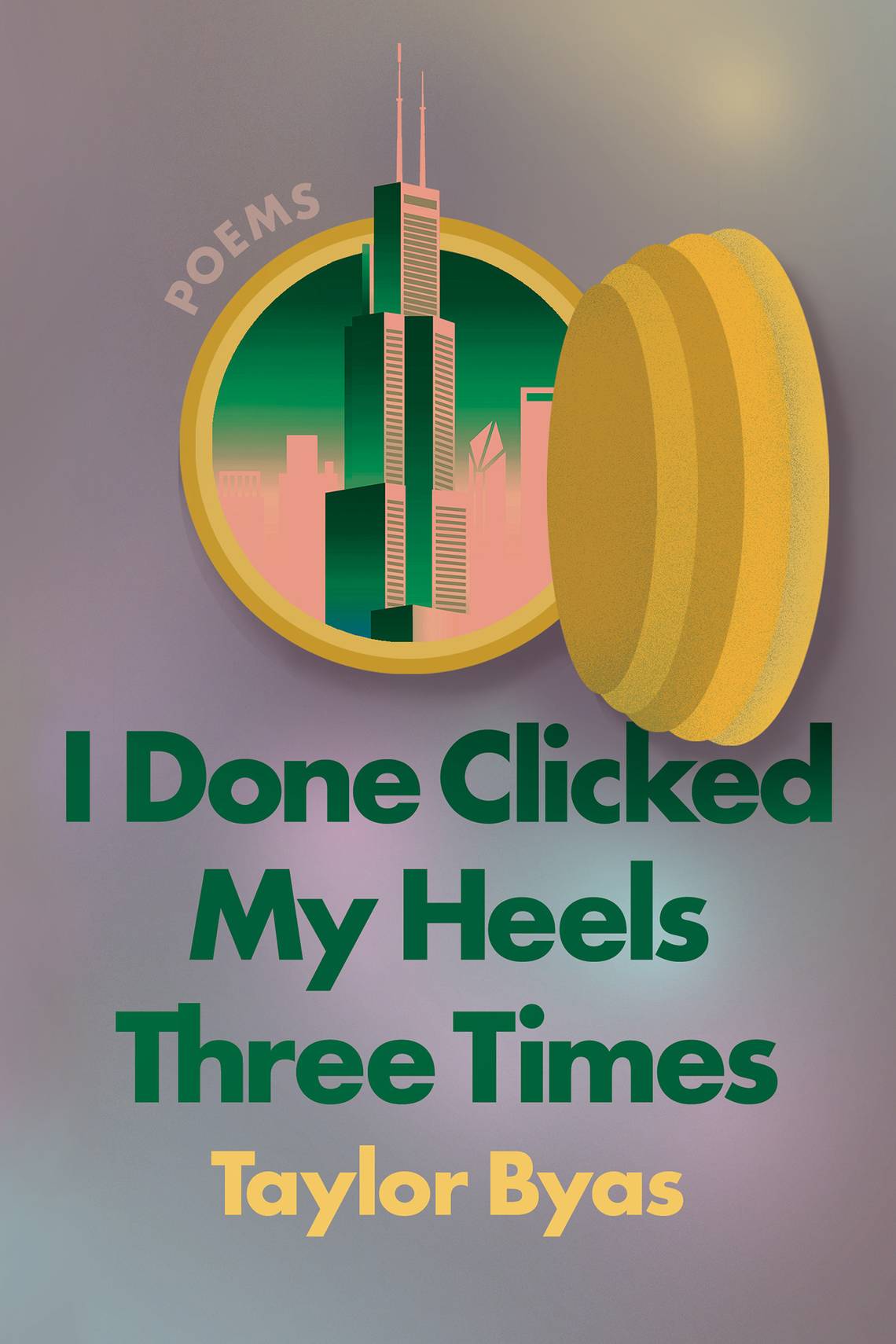Memories of ‘The Wiz,’ and Coming of Age Inspire This Award-Winning Poetry Collection

Taylor Byas never cared much about The Wizard of Oz, but she has always loved The Wiz.
Still, it took a while for the poet from Chicago to realize that the celebrated 1978 musical was a perfect theme for her new collection, I Done Clicked My Heels Three Times.
The images were long embedded: Michael Jackson as the Scarecrow and Diana Ross as Dorothy easing on down the Yellow Brick Road together.
As she worked with her editor, Byas began connecting her book’s coming of age story with the classic tale, lending it structure, but also shoring up the poems’ collective themes.
“We realized that this was a story about not only home but of what happens when you’re whisked away from home,” Byas says. “What does finding home and making the new home away from home look like?”
Her book won the 2023 Maya Angelou Book Award and is the latest selection of the FYI Book Club.
Byas was in transition between a master’s program in Alabama and a Ph.D. program in Ohio while she wrote many of the poems in the collection — not quite being picked up by a tornado — and had begun to see that the answers she sought weren’t going to come to her from an external source but from inside.
As Byas worked to shape the book, she puzzled over realizations about her childhood and tried to fight off the imposter syndrome that had seized her as she began publishing her work and winning awards, first smaller ones like the 2020 Poetry Super Highway Contest, then larger ones.
Just like the characters in The Wiz, in ways, she felt she’d been gaslit, maybe even by herself.
“(They had been) gaslit to believe that they didn’t have the things that they were looking for and were just so convinced that they didn’t have intelligence, that they didn’t have courage,” Byas says. “And all along throughout the movie, you just see them behaving in ways that constantly confirm that they are obviously in possession of these things.”

The parallels between her story and The Wiz were clear enough that she named the book’s seven sections after the show’s songs: “Can I Go On?,” “Ease on Down the Road,” and “Is This What Feeling Gets?” among them.
But Byas’ narrator isn’t plagued by psychedelic witches and toothy trashcans, rather by untrustworthy men and erroneous assumptions.
And she does make a sharp distinction between her own experiences and feelings and those of the voice of the collection. With good reason.
The poems are very personal, sometimes about sexual relationships gone very wrong or intimate family details.
“I think sometimes people might feel a sort of increased familiarity with you suddenly that is uncomfortable to deal with at times,” she explains. “I’m also very open about sharing the poems and the experiences that are shaped by my personal experiences.”
For instance, she says that her father is an alcoholic, and the poem “Drunken Monologue from an Alcoholic Father’s Oldest Daughter” is a “version of me thinking about his addiction and wondering why he’s choosing it over family.”
The first stanza reads:
“My friends say I should have been a therapist and it ain’t funny/ no more. I ain’t seen a dollar of pay for this labor, all my/ pretending — /who do I see about my check? My father says, I just need somebody/ to talk to when he calls. He’s sitting in our house alone/ looking at old pictures and drinking. I still love my wife, I still love/ my wife. And if I answer the phone, I gotta be the mother.”

She also talks about the very physical poem, “Wreckage.”
The narrator is a child in a bathtub repeatedly sinking a toy boat with her mother. But in the remembering, the details change. What color is the boat? Are there people on it? Is her mother close to her, across the room washing her face, or cross-legged on the toilet seat?
What doesn’t shift is the clear feeling that her parents’ relationship isn’t right. The mother’s wedding ring hits the bottom of the tub with a “muted clink” as she forces the ship down herself and tells the girl to leave it where it fell.
The poem includes relatable details that likely already live in many readers’ memories: splashed water on the parent’s neck, “clear freckles across her glasses.” And “arms wet to the elbows” as she kneels and leans over the tub’s edge playing with the child.
Connecting to the reader through a near-universal memory makes the experiences described in other poems that are not as universal easier to slip into — that alcoholic father, for example, or the painful feeling of having her scalp greased and every hair on her head tightly braided as she bites her tongue so she won’t “mewl.”
Byas says that “Wreckage” acts as a hinge in another way, too. It’s the first poem that suggests trouble in the parents’ relationship.
“It helps the reader then kind of step into that as well. It kind of prepares the reader for the ways that the book is going to probe their relationship and the ways that it falls apart,” Byas explains.
And it’s also one she’ll admit to identifying more closely with the narrator than in others.
“But I think there are also ways that some of these poems do take a step away from my personal experience as well, in their thinking,” she says. “There is some fiction, right, in some places.”
Even her hometown is a little fictionalized, but she’s glad to have some control over the narrative.
When she left the South Side of Chicago to pursue an English degree at the University of Alabama at Birmingham, she gained a new perspective — and was a little taken aback by classmates’ comments.
“They sort of made some sort of joke or comment about me being like a thug or me being rough or something of that nature,” she explains. They called it “Chi-raq” and asked “about Chicago being this violent place that has very obviously shaped me to be someone who has really had to just, like, adjust to this violence in a very particular way.”
That wasn’t the home she knew, but it’s also what she saw from national news outlets.
“It is dangerous sometimes, but it’s way more complex than anyone who isn’t from Chicago, I think, can maybe understand,” Byas says.
She explains that Chicago becomes a character in the collection just as much as the narrator does. Another “Wiz”-like move: Dorothy’s longed-for home becomes a character, too, one that, over the course of her journey, she eventually understands differently.
“So, you have these two things or these two characters, you could say, that are changing alongside one another,” she says. Byas illustrates the perspective shifts through analogies and metaphors, often with flick-of-the-wrist moves like in her poem “South Side (I)”: “…The handshake half-hug/sacred enough to make a man feel whole/again. The shapeshifting, how what looks like a thug/in darkness softens into a boy in the gold-/glow of a bedside lamp.”
Toward the end of the collection, Byas’ narrator has gotten to a sort of home, another shifting, and subtler internal change of light.
She moves from corner store scenes in which she’s called “baby girl” by older men causing “fear that flowers in my belly,” to a self-assured woman seeing a therapist and reaching the conclusion that she’s still learning about love.
She’s done clicked her heels three times.
I Done Clicked My Heels Three Times won the 2023 Maya Angelou Book Award. The Kansas City Public Library, the University of Missouri-Kansas City's The Carolyn Benton Cockefair Chair in Continuing Education, and five other Missouri universities established the national award, which recognizes literary merit, how a writer and the writer’s work reflect a commitment to social justice, and how the work “serves to enrich the diversity of American literature.”
The Kansas City Star partners with the Kansas City Public Library to present a book-of-the-moment selection. We invite the community to read along. Kaite Mediatore Stover, the library’s director of readers’ services, will lead a discussion of I Done Clicked My Heels Three Times by Taylor Byas. Email Stover at kaitestover@kclibrary.org to join in. The meeting will take place at 7 p.m. on Monday, March 18, 2024, at BLK + BRWN Bookstore, 104 1/2 W. 39th Street, Kansas City, Missouri 64111.
An Excerpt
“South Side (II)” So there’s nowhere to run, nowhere for us to cry
when the neighbors know your business — the women cooking
on their balconies and patios to side-
eye all the young folks slinking past Just looking
how they look. But this is a form of love as well,
the way they judge the length of your daisy dukes
and feed you, send you home with a plate, say, Tell
your momma I said hello. They’ll put extra scoops
of macaroni and cheese and greens with juice
that will spill into the plastic bag no matter
which way you hold it because the tin foil’s loose.
As you tote it home, the juice will leak and splatter
on your leg, drip down your calves, get sticky, dry
a spidered map beginning at the top of your thigh.